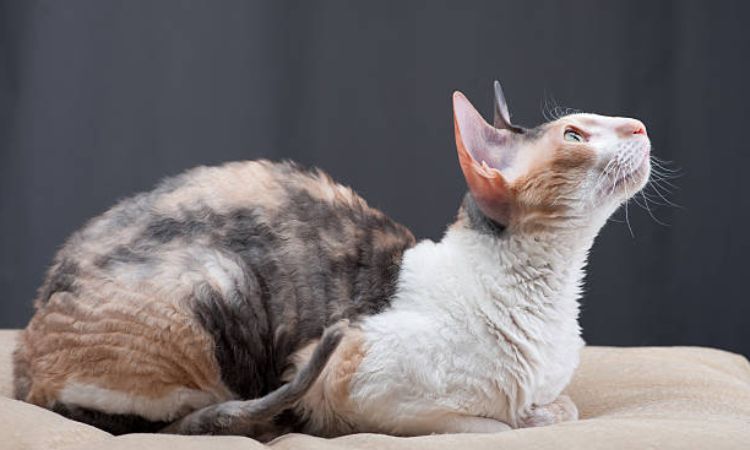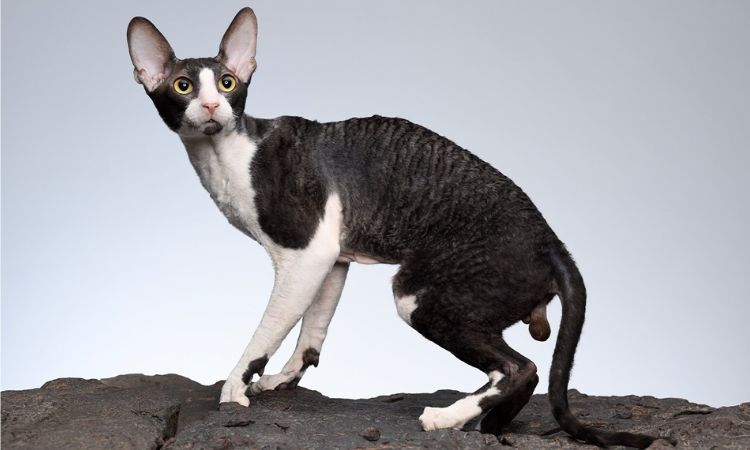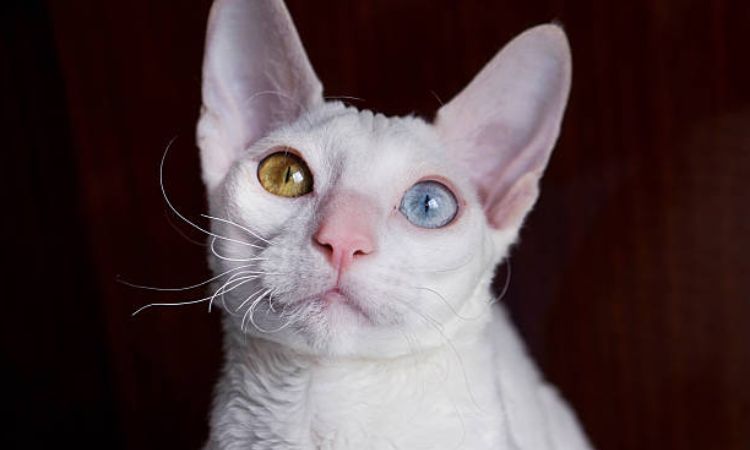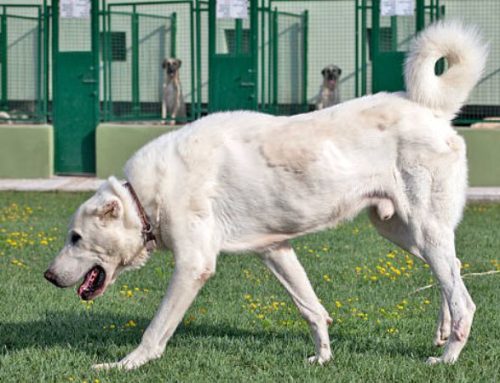The Cornish Rex isn’t just another pretty face in the cat world—it’s a bundle of curls, big ears, and endless energy that never seems to fade. Sleek, playful, and surprisingly affectionate, this unique breed is often nicknamed the “greyhound of cats” for its slim, athletic frame. If you’re curious about what makes them so special, check out Nexus Pets Cornish Rex Lifespan, Personality and Essential Care Tips.
Lifespan & Health

What is the Lifespan of a Cornish Rex?
Cornish Rex cats generally live between 10 to 15 years, though some can live longer with excellent care. Their lifespan is influenced by factors such as genetics, diet, access to regular veterinary care, and whether they live primarily indoors or outdoors. Indoor cats typically enjoy longer, healthier lives since they are less exposed to accidents, harsh weather, and infectious diseases.
Common Health Issues
While Cornish Rex cats are generally healthy, they do have some predispositions to watch out for:
- Hypertrophic Cardiomyopathy (HCM): A heart condition that can affect various cat breeds, including the Cornish Rex.
- Patellar Luxation: A condition where the kneecap can slip out of place, which may cause discomfort or mobility issues.
- Skin Sensitivities: Because they lack protective guard hairs, Cornish Rex cats may have more delicate skin that can be prone to irritation or sunburn.
Preventive Care
To keep a Cornish Rex in good health, proactive care is essential. Regular veterinary check-ups, timely vaccinations, and a balanced diet tailored to their needs all contribute to long-term well-being. Dental hygiene is also important, as dental disease is common in cats. Since their skin is sensitive, owners should ensure they live in a warm, safe indoor environment and avoid overexposure to direct sunlight.
Personality & Temperament
Often nicknamed “the clowns of the cat kingdom,” Cornish Rex cats are playful, energetic, and full of personality. From the moment they wake, they are curious explorers, constantly seeking new ways to entertain themselves and their human companions. Their mischievous streak means they are natural problem solvers, using intelligence and dexterity to open cabinets, manipulate toys, or even toss small objects for self-amusement.
Key Traits
Cornish Rexes are known for their high energy levels and need for mental stimulation. They retain a kitten-like playfulness throughout their lives, making them one of the most active and agile cat breeds. Their slender, athletic bodies and powerful legs allow them to leap great distances and scale furniture effortlessly. Providing tall cat trees, shelves, or interactive toys is essential to keep them engaged and prevent boredom.
These cats are exceptionally intelligent, which makes them highly trainable. They often enjoy puzzle feeders, clicker training, and interactive play that challenges their problem-solving skills. Their cleverness can sometimes lead to humorous antics, adding to their reputation as “clowns” in the feline world.
Cornish Rex Cats as Family Pets
Cornish Rex cats are affectionate and social, forming strong bonds with their human families. They thrive on interaction, often following their favorite people from room to room, seeking attention, and curling up in laps for warmth and comfort. They are generally friendly toward strangers, eager to explore new faces and environments, which makes them excellent companions in bustling households.
Their playful and gentle nature makes them compatible with children and other pets. They enjoy interactive games and are unlikely to display aggression, making them a safe and engaging presence in family homes. However, their need for social interaction means they do not do well when left alone for long periods. Prospective owners should consider providing another pet companion or dedicating time each day to play and bonding activities to keep a Cornish Rex happy.

Essential Care Tips
Grooming
Cornish Rex cats have a short, curly coat that requires less grooming than most breeds, but their delicate fur and sensitive skin still need special attention:
- Minimal Shedding: Their coat lacks the typical guard hairs, so while they shed very little, oil can build up on the skin. Gentle daily or weekly rubdowns with a soft cloth or your hands help remove excess oils and keep the coat shiny and soft.
- Bathing and Skin Moisturizing: Occasionally, a bath may be necessary to maintain skin health, especially if the cat becomes greasy or has a mild skin irritation. Use a gentle, cat-safe shampoo, and ensure thorough rinsing and drying. Avoid over-bathing, as it can dry out their skin. Moisturizing sprays or wipes recommended by a veterinarian can help prevent dryness.
- Ear and Nail Care: Cornish Rexes have large, open ears that accumulate wax and debris. Check ears weekly and clean with a vet-approved solution if necessary. Nails should be trimmed regularly to prevent overgrowth and reduce scratching damage. Regular ear and nail care also helps prevent infections and keeps your cat comfortable.
Feeding and Nutrition
Cornish Rexes are highly active cats with a high metabolism and an enthusiastic appetite. Proper nutrition is essential to support their energy levels and prevent obesity:
- High Metabolism and Appetite: These cats may eat frequently but in small portions. Free-feeding can work if carefully monitored, but it is easy for them to overeat.
- Choosing High-Quality Cat Food: Feed a balanced, age-appropriate diet rich in protein, taurine, and essential vitamins and minerals. High-quality commercial cat food formulated for active cats is ideal. Avoid fillers or low-nutrient diets that can contribute to obesity or nutrient deficiencies.
- Feeding Schedule and Portion Control: Divide daily food into multiple small meals to mimic natural grazing habits and prevent overeating. Monitor weight regularly and adjust portions accordingly. Food puzzles or interactive feeders can make mealtime mentally stimulating and slow down rapid eating.

Creating a Stimulating Environment
Cornish Rex cats are intelligent, playful, and energetic. A rich environment is essential to keep them physically active and mentally engaged:
- Climbing Trees, Toys, and Puzzle Feeders: Provide vertical climbing options such as cat trees or shelves, interactive toys, and puzzle feeders. This encourages exercise, satisfies natural hunting instincts, and prevents boredom.
- Keeping Them Warm and Comfortable: Due to their single, short coat, Cornish Rexes are sensitive to cold. Provide soft bedding, heated cat pads, or cozy spots near warm areas in the home. Avoid prolonged exposure to drafts or air conditioning. Ensuring warmth is especially important for kittens, elderly cats, or those with health issues.
Cornish Rex cats may have low-maintenance coats, but they thrive under attentive care that includes gentle grooming, balanced nutrition, and a stimulating, warm environment. By providing proper grooming, diet, and enrichment, you’ll help your C-rex live a healthy, happy, and active life.
Caring for a Cornish Rex means embracing a cat that is playful, intelligent, and full of personality. With proper grooming, a balanced diet, and a stimulating environment, your C-rex can thrive for many years as a healthy, affectionate companion. Providing consistent attention to their unique needs ensures a strong bond and a happy, active life together.






